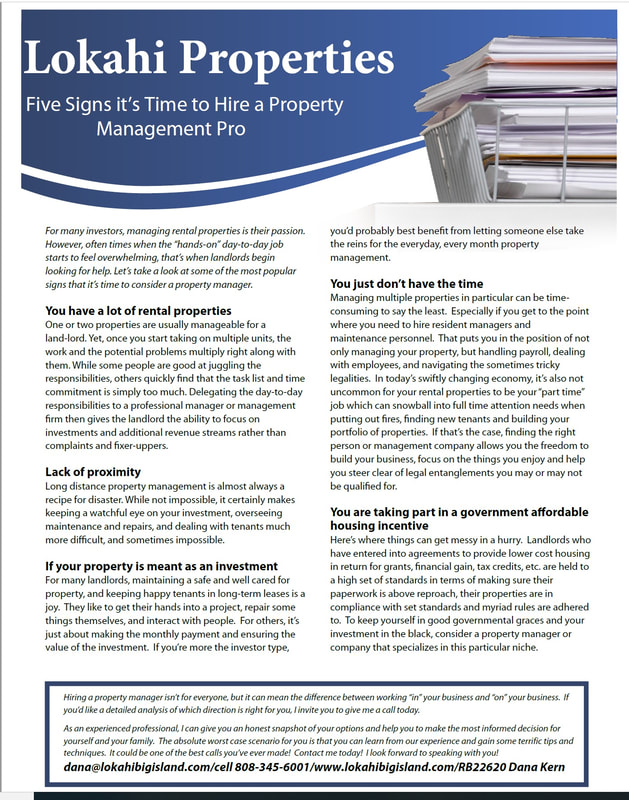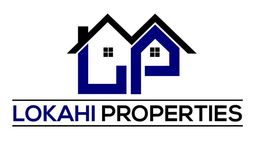|
Owning more than one home is a good financial strategy to have and a great long-term plan towards retirement. When the chance arises, a lot of people prefer to invest in a second home. While the use might not be immediately apparent, it is actually more useful than it seems at first glance.
Second homes are great as an additional lifestyle option, but they can be even much more than that. Here are some of the best ways to make the most of a second home: Investment purposes There are many financial instruments available to invest in such as fixed deposits, mutual funds or even precious metals like gold. However, a second home is a good investment to have. Market metrics indicate that real estate investments are one of the best performing asset classes with higher returns on investments than almost all the previously mentioned assets. Tax benefits A second home is a great way to get tax benefits on the interest payments on your mortgage. There are also other deductions that you can claim even when you are making income from the home. Retirement You can make your second home your retirement villa. If you live in the city, you can buy a home in a quiet countryside of your choosing where you can either live when you have retired or also rent out part of it as an income property. When retirement comes, there’s a good feeling that comes with being able to make the choice to leave the city and relax in a quiet country while maintaining a similar standard of living. Rental property Your second home can serve as a rental property that will be generating income for you. With the help of reliable property management company, such as Lokahi Properties, you can turn over your second home to be rented out to tenants. The income can even be enough to pay part of the mortgage for your first house. Vacation Home Buying a second home in a coastal area can give you a vacation spot where you can take your family for holidays. In most areas, you can also rent it out by using a property management company, such as Lokahi Properties, to find short stay tenants. This will help cover most of your maintenance expenses and even some mortgage costs during peak tourist seasons. Having a second home does not have to be a luxury. With efficient property management, you can turn it to an income generator that will help you meet your financial goals. If you are considering getting a second home, be rest assured that there are many ways that it would benefit you both financially and non-financially. One thing that a lot of new property investors overlook is the benefits that using a property management company offer them. Maintaining a rental property can be quite tedious, and as a new owner, you don’t want to be responsible for all the issues that could be present in the house or angry tenants who may refuse to pay rent.
Some people think hiring property management is a waste of money, but the benefits far outweigh the expenses. Here are some reasons why it is worth leaving your rental property to a property manager to handle: 1. More free time Hiring a property management company ensures that you get your time back from keeping an eye on your rentals. Property managers do all the heavy lifting so that you can get more time to enjoy the returns of your investment. 2. Marketing and advertising Property managers will help you advertise and market your rental to prospective renters at competitive and profitable rates. Instead of spending your time posting classified ads online and in papers, a property management company does all this for you as part of their services. 3. Tenant maintenance Your property manager helps you to handle tenants they do not want to pay rent, are difficult to other tenants and generally constituting a nuisance. Let your property manager handle all the crazy parties and disturbance calls for you, leaving you to face more important things in your life that require your attention. 4. Collecting rent Property managers usually have a foolproof system of ensuring that rent is paid monthly. They also have the responsibility of chasing up with late payments and non-payments. In the event there is a rent increase, they also help work with tenants to explain the rationale and ensure that payment options like direct debits are updated. Lokahi Properties in Kona offers free online rent payment options for tenants. 5. Market appraisal One important benefit of using a property manager is that you will not lose money by underestimating the amount of rent to charge weekly. A property manager helps to keep an eye on the market and keep your property rent competitive so that you can always maintain occupancy. 6. Tenant contracts and legal agreements It is important to protect yourself from liability by having tenants complete their lease contracts correctly. A clear contract indicates all the responsibilities of the tenant and the property owner. New property owners sometimes overlook this part which could lead to issues in the future. A property manager helps to ensure that everything relating to agreements are completed and filed in case it is ever needed. Getting the best out of your property will require spending time working on it, time that you could be spending with your family. Lokahi Properties property management in Kona is the recommended way to go as it allows professionals to handle all things related to your rental property, leaving you to enjoy the benefits. At Lokahi Properties, we give personalized service and treat your home like our own home. Have you ever thought of owning a second home? Or maybe you have one but because of your schedules, they do not permit you to spend more time in it than you’d love? Guess what? Your options are limitless especially when the property is located in the island of Hawaii. Hawaii is known for its rocky landscapes of cliffs, waterfalls, tropical foliage, and beaches with gold, black and even green sands.
We are blessed with diverse natural scenery, abundance of public beaches, oceanic surroundings, warm tropical climate as well active volcanoes. These attributes have all contributed immensely to make this island a popular destination for tourists, surfers, volcanologists, and environmentalists. Among other things, a lot of Hawaii’s rich cultural diversity, as well as the exotic location, have made this island what is today. Hawaii is a huge investment hot spot for not only businesses but most important investment in real estate. We spend so much of our lives working. It is important to think about what tomorrow holds for you and your families. This thought may be supported by the desire to buy a home in a quiet and pristine location, which is calm, peaceful, has friendly local, and has a safe environment. There isn’t any place better to buy a second home than in the island state of Hawaii. Owing a second home is regarded by many as extravagant, especially when viewed from a neutral standpoint. Critics may oppose a second home, as it may stay unoccupied year upon year. What they fail to understand is that having an unoccupied second home in an island is like discovering a gold mine. You can generate thousands to even a hundred thousand dollars in rent profits per year, depending on the house. Here are some of the benefits of renting out your second home. Getting A Shot At Real Estate Investment Firsthand There aren’t many better ways out there to get a shot at what investment in real estate really is, but you can get a taste of it by renting out your second home. Cash Flow Generation An extra few hundred or thousand dollars a month generated by your second home really comes in handy during these uncertain economic times. Who Doesn’t Need a Security Blanket Aside from cash flow, the property will go up in value, giving you an investment to fall back on if ever needed. Buy More Properties Considering the finances the second home generates on rents, it may help you with the funds to buy a third home to be leased out as well. This leads to more financial security. There are Tax Benefits For Being A Landlord here are some great tax benefits to owning rental property. The cost of repairs to the rental property (provided the repairs are ordinary, necessary, and reasonable in amount) are fully deductible in the year in which they are incurred. Good examples of deductible repairs include repainting, fixing gutters or floors, fixing leaks, plastering, and replacing broken windows. The insurance premiums you pay can be deducted for almost any insurance for your rental activity. They may include fire, theft, flood, and the mandated hurricane insurance for the rental property, not forgetting the landlord liability insurance. Finally, you can deduct fees that you pay to attorneys, accountants, property management companies, real estate investment advisors, and other professionals. You can deduct these fees as operating expenses as long as the fees are paid for work related to your rental activity. Conclusively, considering the fact that selling your second home or renting it out are both profitable, know that their levels of profitability differ immensely. What this means is that if you are seeking a short-term investment, then selling your second home is definitely the best option. However, if you intend to be in it for the long term, then listing it out as a rental can be quite profitable, and as you are earning the rental income, your house will be increasing in value over time, maximizing your investment. Every year, landlords need to consider the pros and cons of raising the rent on our tenants. Sometimes it’s clear. If they paid late or were difficult, we raise the rent. But many of our tenants are amazing, so it’s a difficult decision. Do we risk losing a great tenant by raising the rent? Here are three important considerations when deciding whether to raise the rent. 1. Is your rental at market value? On the Big Island, rentals are hard to come by, and rents are high. However, rents are high because of all the costs associated with renting out your home. There are property taxes, insurance costs, landscaping, and repairs and maintenance. Landlords all know that finding new tenants is never a fun process. However, if you haven’t raised the rent in a while, chances are the market value has increased. Is your rental way below other comps in the area? You have a few choices for learning the market value.
There are rising costs with any rental property. Taxes go up. Insurance premiums may increase. Upcoming maintenance needs might be expensive. Here on the Big Island, you may need to take action against invasive pests, such as termites. Take all these things into consideration before renewing a lease at the same rent. If you are making a profit and have a great tenant, it is probably best to leave the rest as if. However, you should not lose money on your own rental, so if you are not making a profit, it is best to raise the rent. 3. Are you able to raise the rent without losing your great tenant? It is a delicate process to raise the rent. Some things to consider are trying to keep it under comparables in the area to still give your tenant a benefit. Provide at least 45 days notice, a law here in Hawaii. The most notice you can give, the better. Be kind in your communications, and let your renter know of your rising costs and that it is not just an arbitrary rent increase just for the sake of getting more money out of the renter. There are times when rent increases are inevitable, but if you can do it the right way, you can likely keep your great tenant. Here is what you need to know about the Big Island Vacation Rental Bill. Vacation rentals have become popular on the Big Island. They are often less expensive than hotels or resorts, and they come fully equipped with everything you need to enjoy your stay. The big websites to book vacation rentals are VRBO.com/Homeaway.com and airbnb.com. Hawaii Appleseed Center for Law and Economic Justice reports that one out of every twenty-four homes in Hawaii is a vacation rental, a number that has been increasing over the past few years. The report also says the amount of vacation rentals is leading to less affordable housing in Hawaii. This bill proposed is not taking aim at homes in resort zoned neighborhoods. Instead, it is taking aim at homes in residential or agricultural zoned neighborhoods. Many homeowners in these residential and agricultural neighborhoods either visit the island part time and vacation rental it when they are off island to supplement their income or bought the home as an investment and vacation rental it to cover their costs associated with ownership. Many local residents take issue with the vast amount of vacation rentals due to the lack of affordable housing. They feel the vacation rentals take even more rentals off the market, which makes it harder for locals to afford to live here. In addition, some of these vacation rentals are not claiming they are vacation rentals and thus are not paying the required taxes associated with renting one’s property. These are some of the reasons the Big Island has proposed restrictions for vacation rentals. So what exactly will these restrictions be? These restrictions are for vacation rentals outside of resort zoned areas. They will not apply to owner-occupied units that rent out a portion of the property. In approved zones, owners will simply have to register as a vacation rental. In non-approved zones, existing vacation rentals who have been diligently paying their taxes may be grandfathered in by applying for a non-conforming use certificate and for some a special permit from the state. If you have not been paying taxes, you likely will be unable to have a vacation rental in non-approved zones, if this bill should pass. The bottom line? If you want to short term vacation rental, you should start now, before the bill passes, and pay your GET and transient taxes. This is your best chance at being grandfathered in. Even if this bill doesn’t pass, restrictions on vacation rentals will likely increase in the future, so be sure you are following local laws and paying the required taxes. Always pay attention to the zoning laws and any CC&Rs in your neighborhood to be sure you are complying with any restrictions or requirements. If you are looking for a property manager to treat your home as their own and to maximize rentals, please reach out to us at Lokahi Properties and see how we can make your investment truly pay off for you. Consider this: if you needed work done on your teeth, would you go to a dentist or do it yourself? The same theory applies to real estate. The art of selling a home is something that takes years to perfect. There are so many aspects of home sales that the average buyers and sellers are unaware of. Also, there are many aspects of the process that are only easily available to a Realtor. The actual process of selling a home is very time consuming, and right about now, the seller has many more important things to consider, such as the impending move.
Realtors spend years learning the art of selling and how to interpret the real estate market. They can offer you insight and information that only comes from years of experience. Realtors are also experts on their area; they know the communities and what they have to offer, the location of schools, transport routes, and how the current market will affect the sale of your home. Using a Realtor to sell your home has several advantages over a for sale by owner (FSBO). Perhaps the most important of these advantages is exposure. The marketing of your home is of the highest importance. Without a robust marketing plan, your home will not be seen by prospective buyers, and as such, will take much longer to sell. Realtors utilize the latest in internet technology to ensure that your home is seen by as many buyers as possible. Also, realtors have a large budget to purchase ads, hold open houses, and create flyers and information packs about your property. Realtors can also utilize a CMA to evaluate the correct value of your home and to price it correctly in your local market. This will enable your home to be competitive and attractive to buyers. Remember, homes sold by a Realtor sell for considerably higher than homes sold by the owner in most cases. Use a professional to sell your home, and free up the time you need to organize yourself for the process of moving your own new home. |
AuthorDana Kern is the Principal Broker at Lokahi Properties Archives
January 2020
Categories
All
|




 RSS Feed
RSS Feed

